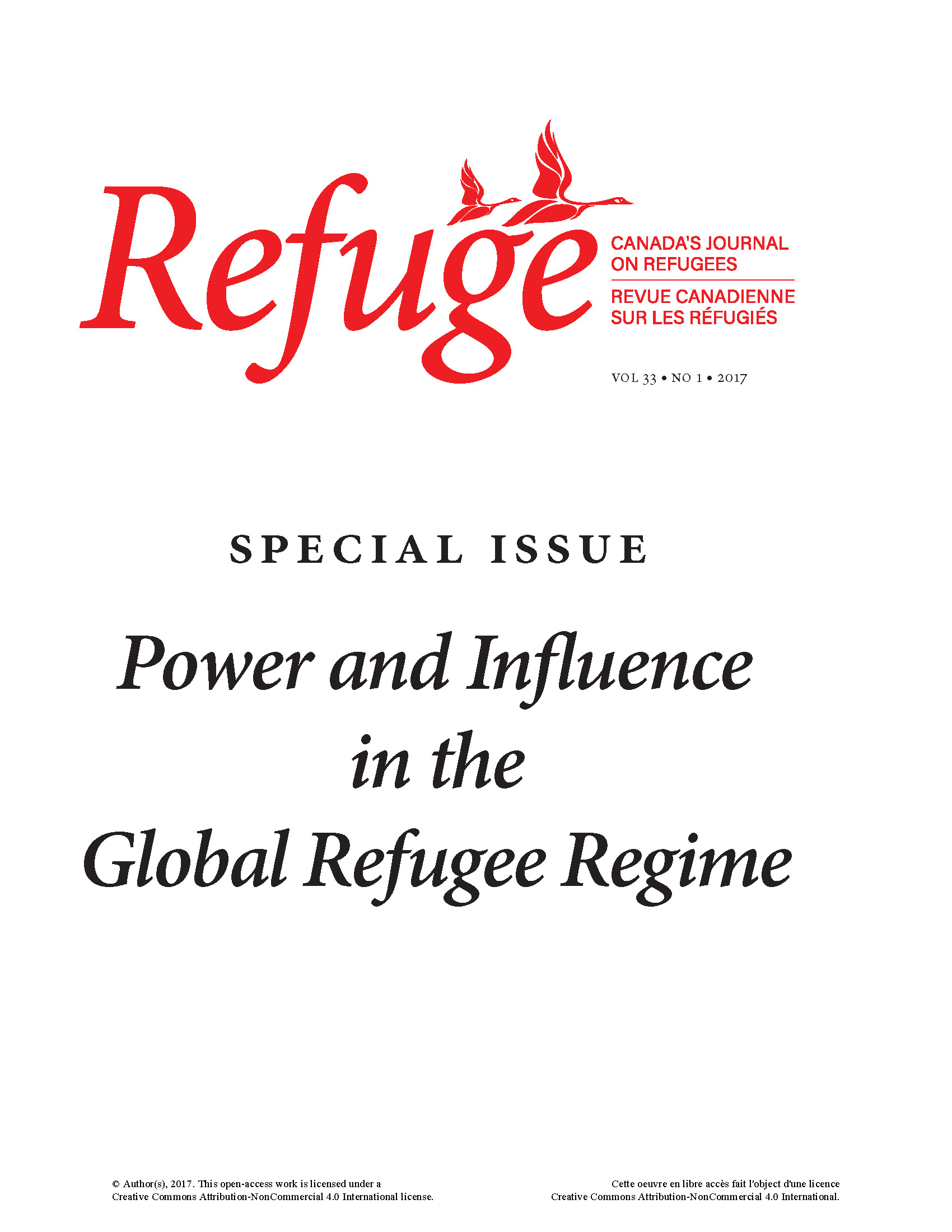US Leadership and the International Refugee Regime
DOI:
https://doi.org/10.25071/1920-7336.40445Keywords:
United States, US leadership, global refugee regime, forced displacement, foreign policy, immigration policy, refugee assistance, history, powerAbstract
This article examines the role of the United States in the international refugee regime. It argues that the United States generally leads in assistance and protection of refugees and displaced persons when three conditions are present: a strong link to US foreign policy; clear and highly visible humanitarian needs and important domestic constituencies in support of action; and strong congressional support. The United States manifests its leadership through its financial contributions, as the largest donor to the array of international organizations with responsibilities in this area; resettlement of the refugees; and the use of the convening power of the US government. Nevertheless, there are reasons to be cautious about US leadership. While it is unlikely that the United States will soon lose its status as principal donor and principal strategist on tackling displacement, its ability to generate new resettlement offers is less clear, as is its ability to increase its own resettlement levels. The asylum system still has significant gaps, making it difficult for the United States to lead by example.
Metrics
Downloads
Published
How to Cite
Issue
Section
License
Copyright (c) 2017 Susan F. Martin, Elizabeth Ferris

This work is licensed under a Creative Commons Attribution-NonCommercial 4.0 International License.
Refuge authors retain the copyright over their work, and license it to the general public under the Creative Commons Attribution-Non Commercial License International (CC BY-NC 4.0). This license allows for non-commercial use, reproduction and adaption of the material in any medium or format, with proper attribution. For general information on Creative Commons licences, visit the Creative Commons site. For the CC BY-NC 4.0 license, review the human readable summary.







